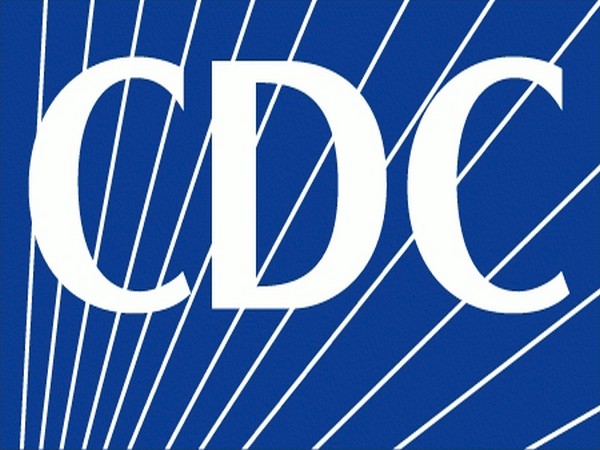U.S. CDC backs COVID-19 boosters for high-risk adults, workers, elderly
The U.S. Centers for Disease Control and Prevention (CDC) on Friday backed a booster shot of the Pfizer and BioNTech COVID-19 vaccine for Americans aged 65 and older, adults with underlying medical conditions and adults in high-risk working and institutional settings.

- Country:
- United States
The U.S. Centers for Disease Control and Prevention (CDC) on Friday backed a booster shot of the Pfizer and BioNTech COVID-19 vaccine for Americans aged 65 and older, adults with underlying medical conditions and adults in high-risk working and institutional settings. The decision by CDC Director Rochelle Walensky is aligned with the U.S. Food and Drug Administration's authorization of the shot earlier this week and follows an August announcement of a broad booster rollout from her and other top U.S. health officials.
Walensky's decision broke from a recommendation on Thursday by a group of outside advisors to the agency who had said that a narrower group of people would be helped by the shot. The CDC director is not obliged to follow the advice of the panel. The panel specifically excluded people in high-risk jobs and those in close living conditions. It recommended boosters for older people and some people with underlying medical conditions.
Scientists have been divided over the need for booster shots for the COVID-19 vaccine, with some including those from the FDA and the World Health Organization saying there is inadequate evidence that they are needed by anyone other than older people. Pfizer and U.S. health officials have argued that the shots prevent hospitalizations and deaths and that emerging data indicates they can slow mild infections as well.
The Delta variant has driven a surge in cases in the United States this summer that peaked on Sept. 1 and has since fallen about 25% to just over 120,000 cases per day based on a 7-day moving average. Walensky said her agency had to make recommendations based on complex, often imperfect data.
"In a pandemic, even with uncertainty, we must take actions that we anticipate will do the greatest good," she said in a statement. The CDC recommendation clears the way for a booster rollout to begin as soon as this week for some of the more than 26 million people who had their second dose of the Pfizer shot at least six months ago. They will be available in pharmacies, vaccination centers and long-term care facilities, the government has previously said.
SVB Leerink analyst Geoffrey Porges told Reuters that he expects many of the "worried well" to seek out booster shots in the coming weeks. Porges said he understood that the CDC was not requiring anything other than self-attestation by booster seekers. "That literally means anyone can show up and say I’m at an increased risk of getting re-infected," Porges said.
Because the FDA has not yet considered the Moderna Inc application for boosters and Johnson & Johnson Inc. has not yet asked for one, Pfizer is likely to benefit, he said. Pfizer shares were down 0.4% at $44 before the bell on Friday, while Moderna shares fell 1% to $449.95.
Bernd Salzberger, head of infectiology at Regensburg University Hospital in Germany, said that given uncertainty over the durability of protection, experts could easily come to different conclusions over who should be eligible for boosters and when. "The United States is currently undergoing a more severe wave of infections than here because there are many more unvaccinated in several states, mainly in the South. That could be a reason for someone to say we must protect healthcare workers in particular," Salzberger said.
CDC RECOMMENDATIONS The CDC said people 65 years and older should get a booster and also recommended the shots for all adults over 50 with underlying conditions.
It said that, based on individual benefits and risks, 18- to 49-year-olds with underlying medical conditions may get a booster, and also people 18-64 at increased risk of exposure and transmission due to occupational or institutional settings. The recommendations cover only people who received their second Pfizer/BioNTech shot at least six months earlier. The CDC said that group is currently about 26 million people, including 13 million age 65 or older.
Last month, U.S. President Joe Biden and eight top health officials said they hoped to start a broad booster shot program this week, saying data showed immunity wanes over time. Vaccine expert Dr. Paul Offit said he believed the CDC advisers were worried that recommending boosters based on employment would allow overly broad use.
"That was a hole that you could drive a truck through, that essentially what we were doing was basically what the (Biden) administration initially asked - to just have a vaccine for the general population, because obviously the pharmacists aren't going to figure out whether you're working in a grocery store or hospital," he said. More than 180 million people in the United States are fully vaccinated.
Some countries, including Israel and Britain, have already begun COVID-19 booster campaigns. The United States authorized extra shots for people with compromised immune systems last month and around 2.3 million people have already received a third shot, according to the CDC.
(This story has not been edited by Devdiscourse staff and is auto-generated from a syndicated feed.)










